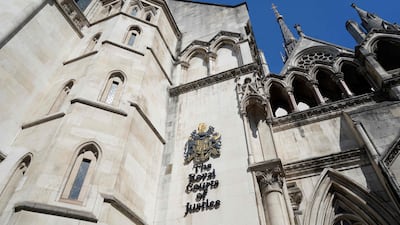Two Syrian refugees have lost their High Court fight for their seriously ill daughter to continue receiving life-support treatment.
The six-year-old is dying from a rare and incurable neurological condition, specialists told Mr Justice Hayden and recommended she be moved to a palliative care regime.
Her parents disagreed and wanted her to receive “long-term ventilation”.
The girl's parents, who left Syria eight years ago and claimed political asylum in Britain, wanted to care for her at home with a portable ventilator.
The judge on Wednesday concluded that life-support treatment should end and ruled against the couple.
He said the “brutal unfairness” of what happened to the youngster was a “painful event to consider”.
But he said evidence showed she was “beyond medical help” and the time had come for her parents to “engage” with a palliative care plan.
Mr Justice Hayden finished hearing evidence at a trial in the Family Division of the High Court in London earlier this week.
The girl is in the care of the Birmingham Women’s and Children’s NHS Foundation Trust.
Trust bosses asked Mr Justice Hayden to decide what moves were in the girl’s best interests.
He said the girl cannot be identified publicly, with her parents against her being named in the media.
Mr Justice Hayden was told the girl was born in Lebanon after her parents left Syria.
She fell ill about four years ago after arriving in England.
“The brutal unfairness of what has happened to (the girl) following everything else that this family have experienced is painful even to bear,” Mr Justice Hayden said in his ruling.
“Nobody can imagine how they feel.”
He added that "there is no prospect that home ventilation can achieve any medical benefit for (her)".
No treatment could “make her better”, he said.
“She is, in truth, beyond medical help. But she is not beyond physical burden.
“The time has now come for the parents to engage with a palliative care plan.”
A barrister who led the trust’s legal team gave Mr Justice Hayden details of the girl’s condition and said it was irreversible and progressive.
Nageena Khalique QC said the girl could no longer walk, sit or stand and had spent two-thirds of 2022 on a ventilator in an intensive care unit.
“This is a very cruel condition,” Miss Khalique told the judge.
“We have now come to a stage where the trust no longer thinks that it is in (the girl’s) best interests to continue giving her invasive ventilatory support.
“There is no cure.”
Barrister Ian Brownhill, who led the parents’ legal team, said the couple accepted their daughter would not recover but did not agree a “ceiling of care” should be imposed.
Mr Justice Hayden was told the girl had spells when she was not on a ventilator.
During those “respite” periods, she was constantly supplied with oxygen to help her breathe.
The girl’s parents are Muslim and they raised cultural and religious objections to doctors’ proposals.
Her father told the judge he understood the doctors’ point of view.
But he said his daughter would be “happier” at home on long-term ventilation.
He said not providing home ventilation would be failing to help and “a sin”.
The youngster’s father told the judge: “We have suffered our entire life since we were born ― in Syria, in Lebanon.
“Here, we have received a lot of help.”
The man said he would “never return” to Syria because of the “regime”.
The girl’s mother told the judge the youngster had a “smile on her face” when at home and added: “I am asking you for your mercy.”
Mr Justice Hayden described the couple as “incredibly brave and resilient”.
He said the girl was lucky to have them as parents.
“It is tragic what has happened,” he said.


